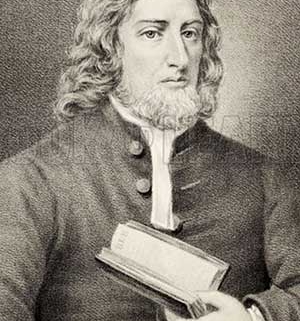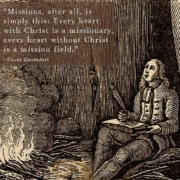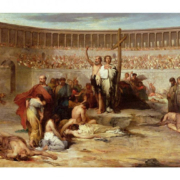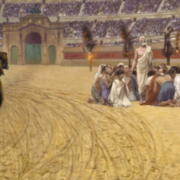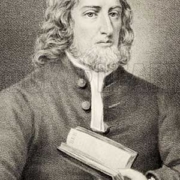The Intercessor John Welsh
Frank Di Pietro, The Fire That Once Was: John Welsh prayed. It was said of John Welsh that he thought a day “ill-used” if he did not spend seven to eight hours of it in prayer. At different times throughout the day he would stop what he was doing, retire to a secluded room or location, and boldly go before the throne of grace, that he might obtain mercy and find grace to help him in his time of need. (Heb. 4:16). It was his prayer life that sustained him. It was prayer that strengthened him in the trials and persecutions that were leveled against him. It was prayer that gave him the fortitude to continue preaching the Gospel in the face of adversity and peril. It was prayer that increased his intimacy with his Savior. It was prayer that not only changed the hearts of thousands but also an entire town to the things of God. It is said that the power in which a man walks in God is a reflection of the time he spends in prayer, and, oh, what power John Welsh walked in. You see, John Welsh prayed…. John Welsh, at the age of twenty, was on his way to his first ministry position. It was in the city of Selkirk, about thirty-eight miles south of Edinburgh (Scotland). His extraordinary character, intensity, and fervor for a moral and godly point of view, along with his unremitting and untiring zeal, soon led him to become an object of dislike and jealousy both to the clergy and the laymen of the organized church in the district where he was now living. The hatred with which he was persecuted by his peers, along with the realization of the lostness of the people, led him into a lifetime of intense prayer. It was here in Selkirk, a time of constant struggle, that he began his eight hours of daily prayer which he continued the rest of his life. Selkirk was a hard town. The people were poorly educated and, as Welsh says in his own words, “uncouth.” They refused to listen to him because they were content with the dead religion those in charge had been giving them. They resisted his ministry even to the point of violence. Welsh labored among the people of Selkirk for six years and it was a constant struggle. He would preach publicly once or twice each day, but to no avail. Praying unceasingly about the barbaric actions of the townsfolk, he would not let a night go by without the town witnessing his passionate and intense devotions before the Lord. Every night before going to bed, he would place a Scotch plaid (small blanket or shawl) on the side of the bed, that when he awoke in the cold of the night for his midnight prayers it would be handy to wrap around his shoulders. Agonizing with God in prayer he would ask that these hearts be changed, or that he be removed to a more suitable place for the Gospel. The answer would come soon.
The one good thing that came out of his sojourn in Selkirk was his marriage in 1594 to Elizabeth Knox, the youngest daughter of the mighty Scottish reformer John Knox. Knox is remembered for bringing a countrywide move of God that changed the whole of Scotland for a time. It was Knox that passionately cried out to God in prayer, “Give me Scotland, or I die.” So now another great man of prayer through marriage had been given the torch of revival for the land. Elizabeth was a positive influence on Welsh; being brought up from early years in the principles of Holy Scripture, she was a worthy helpmate in the trials and sufferings for the Gospel’s sake that would continue throughout their lives.

